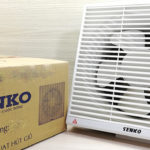Air conditioners have become essential appliances for many households, especially during hot summer days. However, not everyone knows how to use air conditioning efficiently and economically. Keeping the AC on for extended periods or setting the temperature too low can lead to high electricity bills and even affect your health.
Let’s explore some tips on the ideal duration for running your air conditioner and how to use it more efficiently and economically.
1 How Long Should You Keep the AC On?
Many people wonder how long they should keep their air conditioner on to maintain a comfortable temperature while saving electricity. Here are some tips to help you use your AC more efficiently:
Avoid Frequently Turning the AC On and Off
Each time the air conditioner starts up, it consumes three times the normal power, leading to wasted energy. It is best to keep the AC running for at least 15-20 minutes to cool the entire space. For hotter days, larger rooms, older AC units, or units with a refrigerant leak, this time may need to be extended to up to 40 minutes.
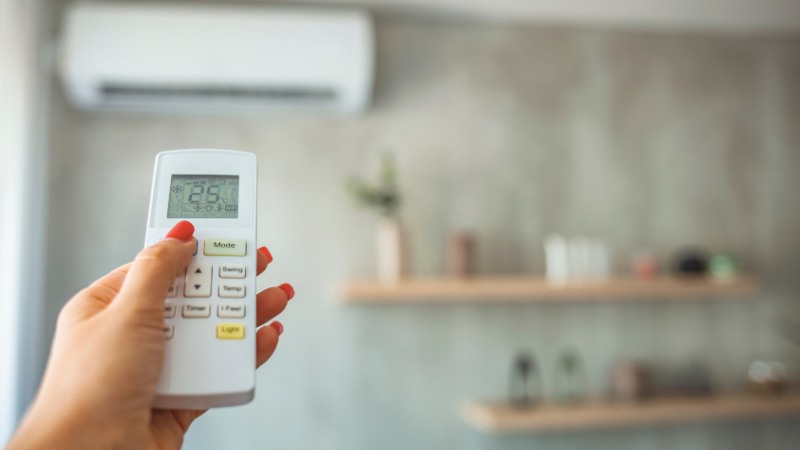 Keep your AC running for at least 15-20 minutes to cool the entire space effectively.
Keep your AC running for at least 15-20 minutes to cool the entire space effectively.
How Long Can You Run the AC?
According to tests, running the AC overnight (9-12 hours) typically costs only 5,000-7,000 VND in electricity, depending on the type and capacity. Inverter air conditioners are more energy-efficient than conventional ones.
 Running your AC overnight is relatively inexpensive, costing only around 5,000-7,000 VND.
Running your AC overnight is relatively inexpensive, costing only around 5,000-7,000 VND.
Avoid Running the AC 24/7
Doing so can overload the AC, leading to breakdowns. It is recommended to use the AC for a maximum of 12-15 hours a day, divided into different time slots.
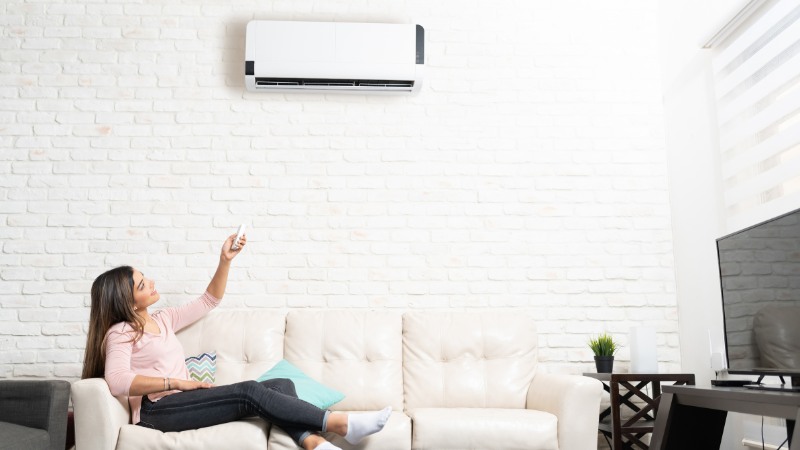 Avoid running your air conditioner 24 hours a day, 7 days a week.
Avoid running your air conditioner 24 hours a day, 7 days a week.
2 Tips for Efficient and Economical AC Use
Use the AC with a Fan
Using a fan with your air conditioner helps circulate the air in the room, creating a cooler feeling without lowering the temperature too much, thus saving energy.
Position the fan towards the window to push hot air out.
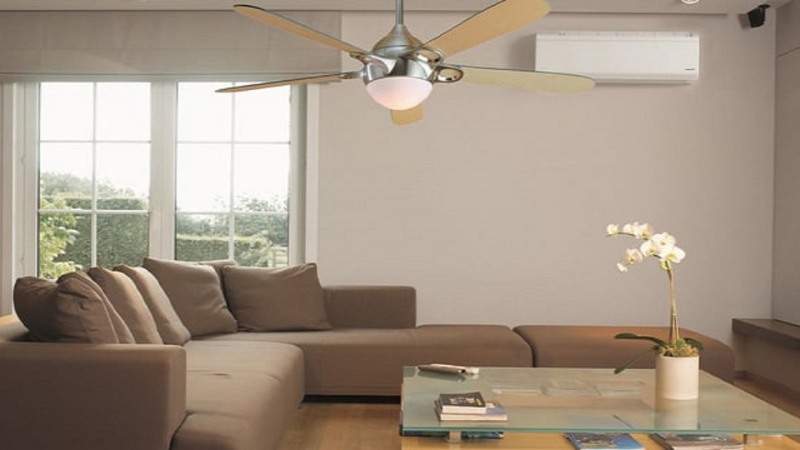 Using a fan with your AC helps circulate air and enhances the cooling effect.
Using a fan with your AC helps circulate air and enhances the cooling effect.
Block Out Sunlight
Draw the curtains and close the windows during the day to reduce the amount of heat entering the room, thus improving the efficiency of your air conditioner. You can also use heat-blocking curtains.
Plant trees around your house to create shade and reduce the amount of heat absorbed by the building.
 Block out sunlight to keep your room cooler and improve AC efficiency.
Block out sunlight to keep your room cooler and improve AC efficiency.
Regularly Clean and Maintain Your AC
Clean the air filter regularly (every two weeks) to ensure unobstructed airflow, allowing the AC to work more efficiently. Maintain your AC every six months to identify and fix any potential issues, ensuring it runs more economically.
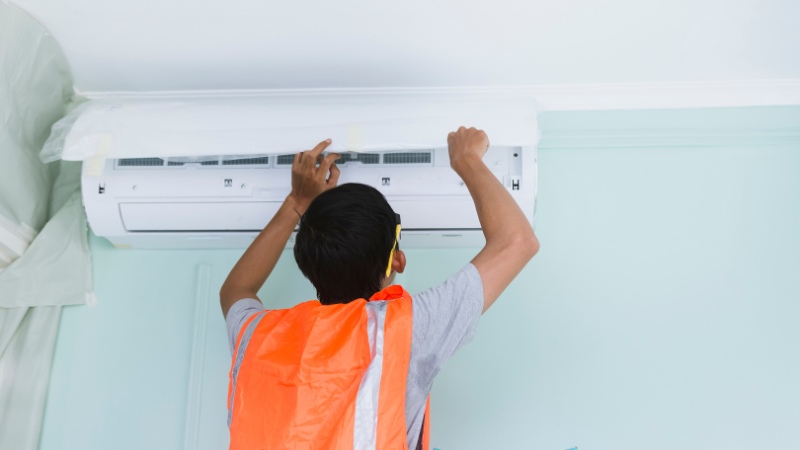 Regular cleaning and maintenance of your AC will improve its efficiency and longevity.
Regular cleaning and maintenance of your AC will improve its efficiency and longevity.
-
Choose an AC with a capacity suitable for your room size.
-
Use the timer function to turn off the AC when not in use.
-
Set the temperature to a reasonable level, not too low.
-
Turn off the AC 30 minutes before leaving the room.
There you have it! We’ve shared tips on the ideal duration for running your air conditioner and how to use it efficiently. We hope this helps you make smarter choices about using your AC, saving you money on electricity bills and protecting your health.
Exploring the Pros and Cons of Sleeping in an Air-Conditioned Room
Is sleeping with an air conditioner a good idea? As concerns over the adverse effects of air conditioning on our health increase, it’s important to understand the risks and rewards of using air conditioning while sleeping. Let’s examine the benefits and drawbacks of sleeping with an air conditioner, and the protective measures one should take.
How to Maximize Air Conditioning Comfort for Babies in the Home
Having a new baby in the home brings many considerations and responsibilities, none more important than making sure the baby is safe and healthy. One way to achieve this is proper air conditioning usage. Read on for helpful tips on how to make the best use of air conditioners to keep your newborn safe.


























